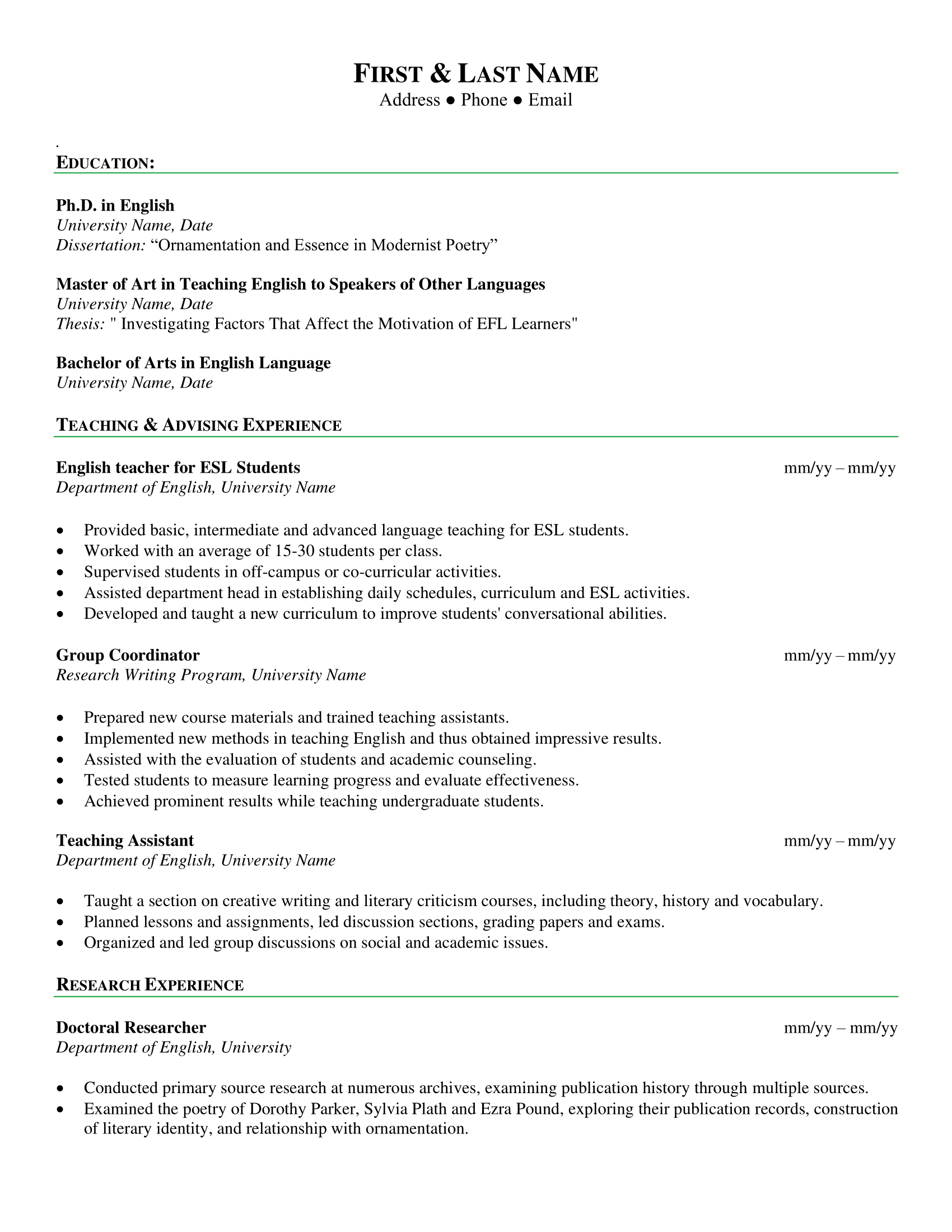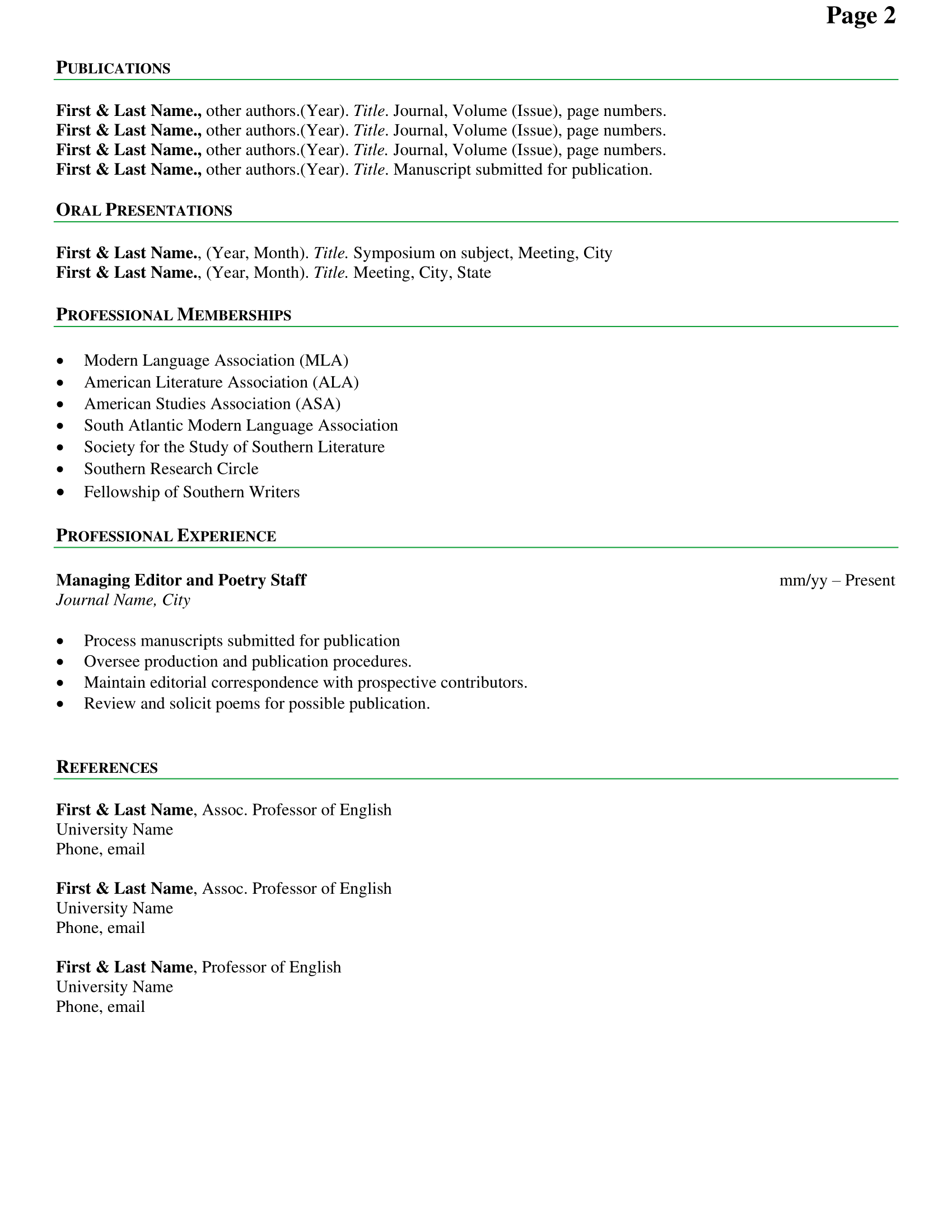Academic CV Sample
Academic curriculum vitae is one of the most challenging types of CV, as it should show you as the best candidate for an honorary role of a scientist. Usually, CV is the first contact between a candidate and his future colleagues. Since your desired position is academic, you will be scrutinized more closely than when hiring for a regular job. You can apply for a non-academic job using a resume, but if you want to work in research, it is not possible to shorten the information. The convenience of curriculum vitae is that you can enter more than two pages of data because you need to describe all the experience, research, grants, publications, and licenses you have. Thus, you can interest the employer and make them look at other materials of your application.


The Academic Positions website points out the vital role of research-connected opportunities and clarifies that such a worker can earn up to $ 104,000 a year. A candidate’s experience influences their earnings, and the more experience they have, the higher their position is. As a result, CVs are becoming more and more piled up with information, as a Doctoral curriculum vitae sample can be four pages long on average. There are over 30 categories of what you can write about in your CV, but we have listed the most important categories in our example.
How Can You Make Your Academic CV More Successful?
Academic positions are challenging even at the application stage. A researcher’s curriculum vitae should be not only literate but also clear, consistent, and meaningful. Likewise, almost everyone should understand your information, so you should avoid too weighty, scientific terms that can be replaced with other words. In addition, it is worth:
- Information about education and achievements is the most important one, so you should submit it to your CV immediately in a consistent manner.
- Think about what is attractive to your audience. It may be preferable for some universities to hear about grants while others want to know more about publications or teaching.
- Use formatting to help the reader navigate through the document. However, do not neglect it and choose only one format, for example bold, italic, or underline. Otherwise, the CV will look too chaotic
- Telling about your accomplishments or experience, clarify what and how you did for achieving something, and what the result was. Describe your skills along with action verbs to add confidence to your document.
- Think about the length of your document in advance. Summarize the information and make a plan.
After writing a course of your life, you can submit your CV to the person in your field for review and feedback. They can point out flaws and help improve your text. But if you are not sure about that, you can ask the ResumeEdge team for help. Since we have extensive experience in CV Academic writing, we can make your resume high quality. Besides, our team consists of experts from different fields, and therefore we are sure that we choose the person who is right for your case.
